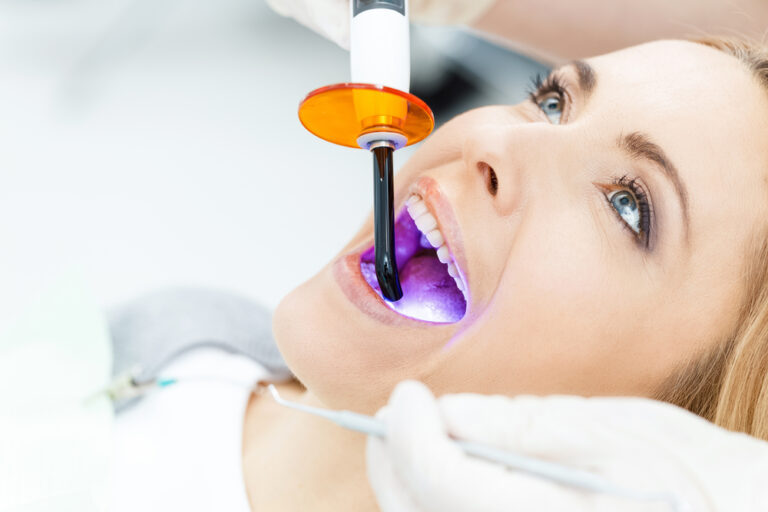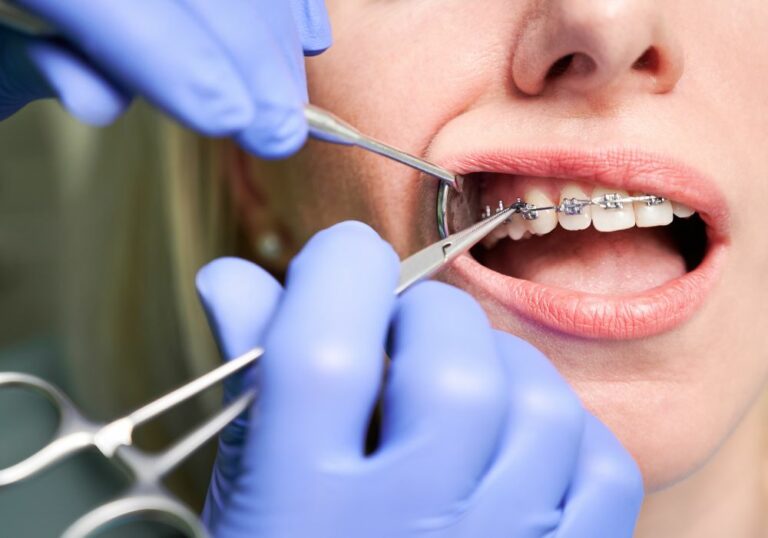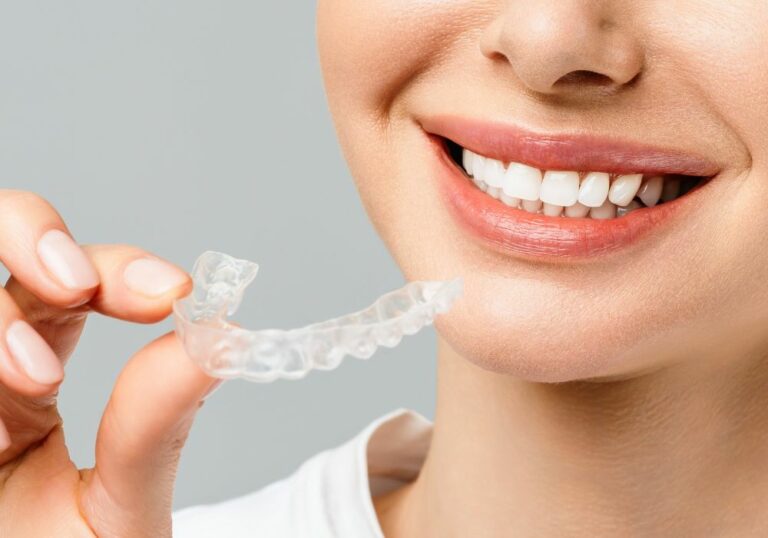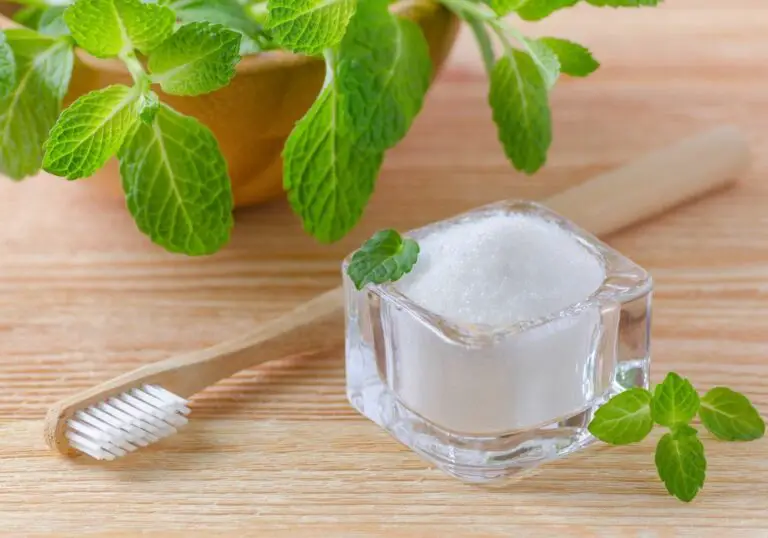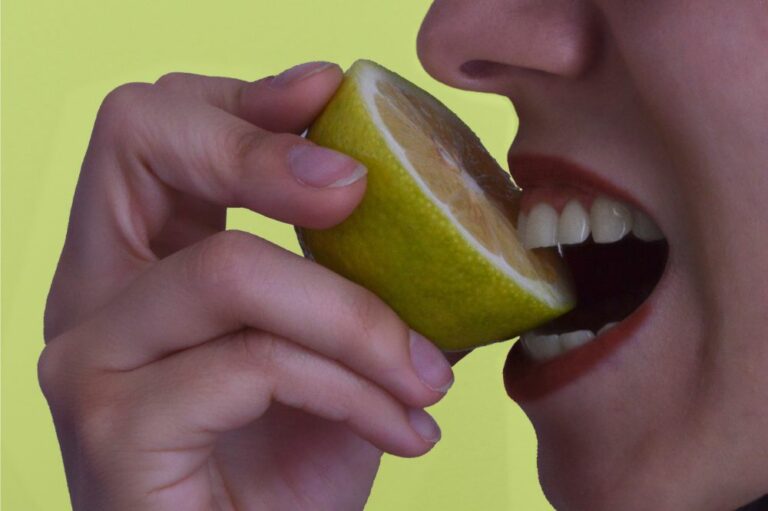Are you experiencing dental bone loss? This is a common and troublesome condition that can have severe consequences if left untreated. The good news is that you can regrow bone around your teeth naturally to reverse this damage. With the right approach, bone loss is both preventable and treatable.
Maintaining excellent oral hygiene is the first step in preventing dental bone loss. Brushing with fluoride toothpaste, flossing daily, and avoiding sugary and acidic foods can help reduce mineral loss in your tooth enamel. Additionally, ensuring that you are getting enough calcium and vitamins in your diet can also help prevent bone loss.
If you are already experiencing bone loss, there are natural ways to regenerate bone around your teeth. Bone grafting is a minimally invasive procedure where the dentist uses new bone material to regenerate the bone. This can be done using new bone from your body or from a cadaver or animal. There are also several home remedies that can help remineralize your teeth and promote bone growth. In this article, we will explore these natural methods in more detail so that you can take steps to regenerate bone loss in your teeth and maintain a healthy smile.
Understanding Bone Loss in Teeth
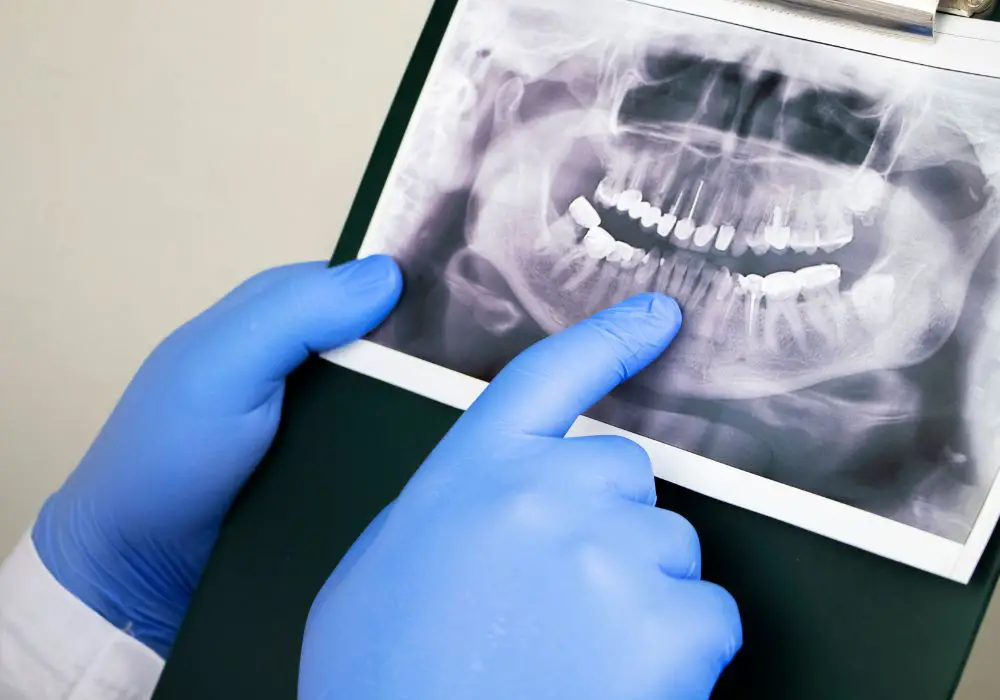
Bone loss in teeth occurs when the bone that supports your teeth starts to deteriorate, leading to tooth loss. It is a common problem that can be caused by various factors such as gum disease, poor oral hygiene, and aging. Understanding the causes of bone loss in teeth can help you prevent and reverse it naturally.
Gum disease is the most common cause of bone loss in teeth. It is caused by the buildup of plaque and tartar on the teeth, which irritates the gums and causes inflammation. Over time, this can lead to the destruction of the bone that supports your teeth.
Poor oral hygiene is another common cause of bone loss in teeth. Failure to brush and floss regularly can lead to the buildup of plaque and tartar, which can cause gum disease and eventually bone loss.
Aging is also a factor that can contribute to bone loss in teeth. As you age, your bones become less dense, making them more susceptible to damage and deterioration.
Other factors that can contribute to bone loss in teeth include smoking, poor nutrition, and certain medical conditions such as osteoporosis.
In summary, bone loss in teeth is a common problem that can be caused by various factors. To prevent and reverse it naturally, it is important to maintain good oral hygiene, eat a healthy diet, quit smoking, and seek treatment for any underlying medical conditions.
Importance of Diet
Maintaining a healthy and balanced diet is crucial for promoting bone growth and preventing bone loss in your teeth. Here are some tips on how to achieve a nutrient-rich diet and avoid harmful foods.
Nutrient-Rich Foods
Including certain foods in your diet can help promote bone growth and prevent bone loss. Here are some examples of nutrient-rich foods that you should consider adding to your meals:
- Calcium-rich foods: Calcium is essential for building strong bones. Foods such as milk, cheese, yogurt, leafy greens, and fortified cereals are excellent sources of calcium.
- Vitamin D-rich foods: Vitamin D helps your body absorb calcium. Fatty fish, egg yolks, and fortified foods such as milk and cereal are good sources of vitamin D.
- Phosphorus-rich foods: Phosphorus is another mineral that is important for bone health. Foods such as meat, fish, poultry, nuts, and beans are rich in phosphorus.
- Vitamin K-rich foods: Vitamin K helps your body produce a protein that is necessary for bone health. Leafy greens such as spinach, kale, and collard greens are excellent sources of vitamin K.
Avoiding Harmful Foods
Some foods can contribute to bone loss and should be avoided or consumed in moderation. Here are some examples of harmful foods that you should limit in your diet:
- Sugary foods and drinks: Consuming too much sugar can lead to tooth decay and gum disease, which can contribute to bone loss.
- Processed foods: Processed foods are often high in sodium, which can lead to bone loss over time.
- Alcohol: Drinking too much alcohol can interfere with your body’s ability to absorb calcium, which can lead to bone loss.
By making these dietary changes, you can help promote bone growth and prevent bone loss in your teeth.
Natural Remedies
If you are looking for natural remedies to regenerate bone loss in your teeth, there are a few options that you can consider. These remedies can help to promote the growth of new bone tissue and strengthen your teeth.
Herbal Solutions
Herbs have been used for centuries for their healing properties. Some herbs can help to stimulate bone growth and improve oral health. Here are a few herbs that you can try:
- Horsetail: This herb is high in silica, which is essential for bone growth. You can brew horsetail tea and drink it daily to help regenerate bone tissue.
- Nettle: Nettle is another herb that is rich in silica. It also contains calcium, magnesium, and other minerals that are important for bone health. You can brew nettle tea and drink it daily to help strengthen your teeth.
- Comfrey: Comfrey contains allantoin, which is a compound that can help to stimulate cell growth. You can make a poultice with comfrey leaves and apply it to your gums to help regenerate bone tissue.
Homeopathic Remedies
Homeopathy is a form of alternative medicine that uses highly diluted substances to stimulate the body’s natural healing processes. Here are a few homeopathic remedies that can help to regenerate bone tissue:
- Calcarea phosphorica: This remedy is made from calcium phosphate, which is a mineral that is important for bone growth. It can help to stimulate the growth of new bone tissue and strengthen your teeth.
- Silicea: Silicea is made from silica, which is essential for bone growth. It can help to promote the growth of new bone tissue and improve oral health.
- Symphytum: This remedy is made from comfrey, which contains allantoin. It can help to stimulate cell growth and regenerate bone tissue.
Remember, natural remedies can be helpful, but they should not be used as a substitute for professional dental care. If you are experiencing bone loss in your teeth, it is important to see a dentist for proper diagnosis and treatment.
The Role of Exercise
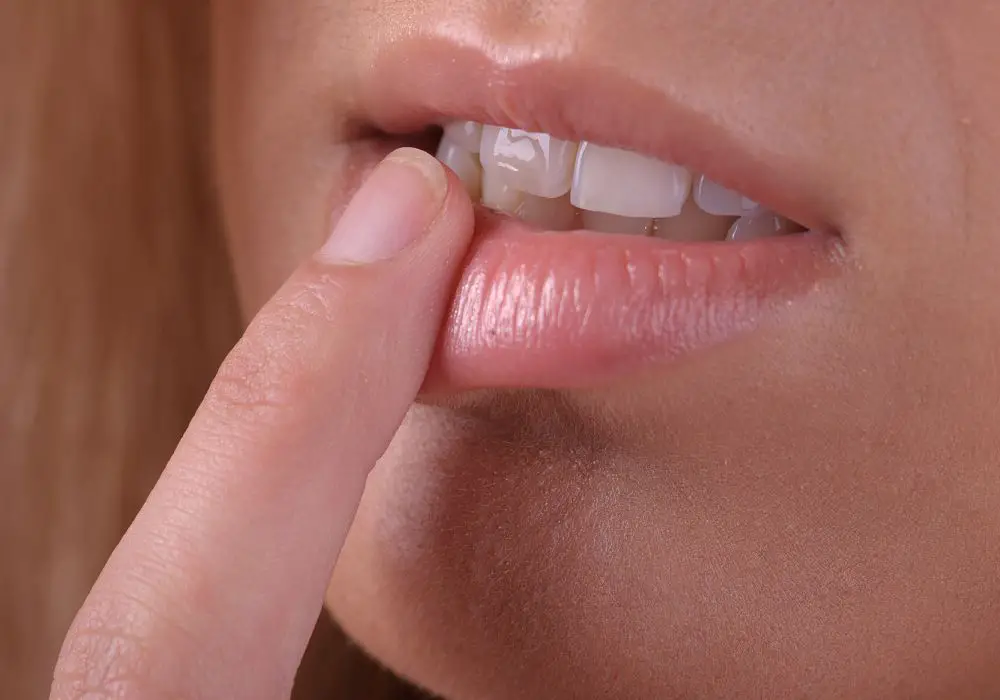
Exercise is an essential part of maintaining good health, and it can help improve the density and strength of your jawbone. When you exercise, you stimulate your body to produce more bone cells, which can help regenerate lost bone tissue.
Weight-bearing exercises, such as walking, jogging, or weightlifting, are particularly effective at building bone density. These exercises work by putting stress on your bones, which signals your body to produce more bone cells.
In addition to weight-bearing exercises, there are also specific exercises that target the muscles in your jaw and can help improve bone density. These exercises include biting down on a resistance tool, such as a rubber ball or a piece of gum, and holding it for several seconds.
It’s important to note that exercise alone may not be enough to regenerate bone loss in your teeth. A balanced diet that includes plenty of calcium and vitamin D is also essential for maintaining strong bones.
Incorporating exercise into your daily routine can have numerous benefits for your overall health, including improving bone density and strength. Talk to your dentist or doctor about the best exercise plan for you, and be sure to follow their recommendations to achieve the best results.
Importance of Oral Hygiene
Maintaining good oral hygiene is crucial for preventing bone loss in your teeth. Proper brushing techniques and flossing regularly can help you keep your teeth and gums healthy.
Proper Brushing Techniques
Brushing your teeth twice a day for at least two minutes each time is essential. Make sure to use a soft-bristled brush and fluoride toothpaste. Brush all surfaces of your teeth, including the front, back, and top. Use circular motions and gentle pressure to avoid damaging your gums.
In addition, consider using an electric toothbrush, which can be more effective at removing plaque and preventing gum disease. Some electric toothbrushes even have built-in timers to help you brush for the recommended two minutes.
Flossing Regularly
Flossing is just as important as brushing for maintaining good oral hygiene. Flossing removes plaque and food particles from between your teeth and along your gum line, where your toothbrush can’t reach.
To floss properly, use a piece of floss about 18 inches long. Wrap the floss around your fingers and gently slide it between your teeth. Curve the floss around each tooth and move it up and down to remove plaque and debris. Be sure to use a fresh section of floss for each tooth to avoid spreading bacteria.
By following proper brushing and flossing techniques, you can help prevent bone loss in your teeth and maintain good oral health.
Lifestyle Changes
If you want to regenerate bone loss in your teeth naturally, there are some lifestyle changes you can make that may help. These include quitting smoking and limiting alcohol consumption.
Quitting Smoking
Smoking is one of the biggest risk factors for gum disease and tooth loss. It can also slow down the healing process after dental procedures. If you want to regenerate bone loss in your teeth, quitting smoking is one of the best things you can do.
Quitting smoking can be challenging, but there are many resources available to help you. You can talk to your healthcare provider, join a support group, or use nicotine replacement therapy.
Limiting Alcohol
Drinking alcohol in moderation is generally considered safe for most people. However, excessive alcohol consumption can have negative effects on your oral health. It can increase your risk of gum disease, tooth decay, and tooth loss.
If you want to regenerate bone loss in your teeth, it’s important to limit your alcohol consumption. The National Institute on Alcohol Abuse and Alcoholism defines moderate drinking as up to one drink per day for women and up to two drinks per day for men.
In addition to limiting your alcohol consumption, it’s important to practice good oral hygiene. This includes brushing your teeth twice a day, flossing daily, and visiting your dentist regularly.
Professional Help
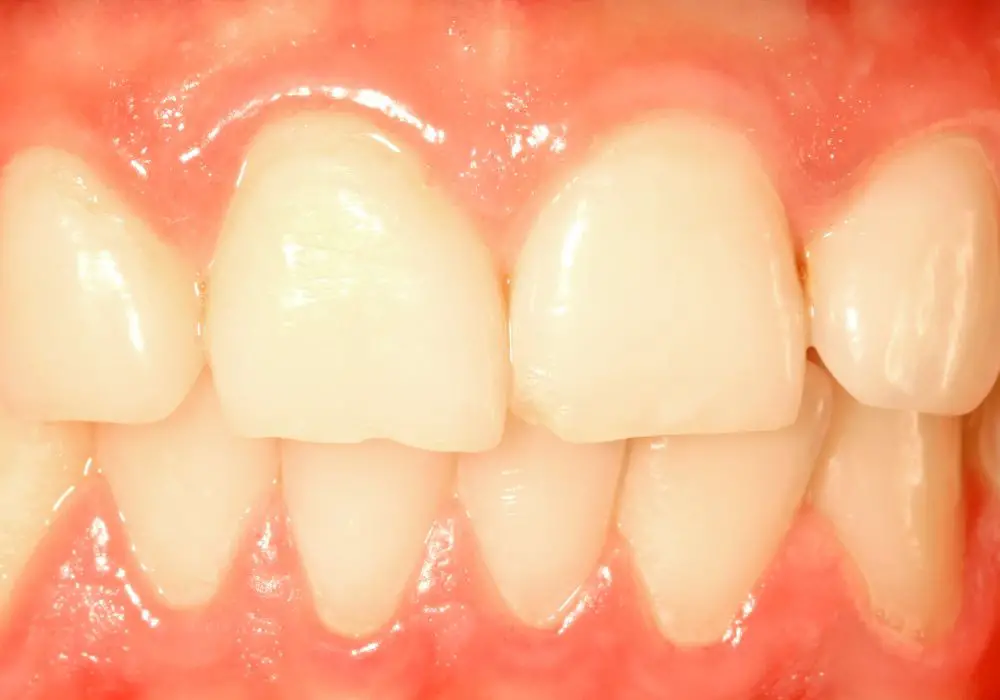
When it comes to regenerating bone loss in your teeth naturally, seeking professional help can be an important step. Here are two professionals you can consult with:
Regular Dental Check-ups
Regular dental check-ups are crucial for maintaining good oral health and preventing further bone loss. During these check-ups, your dentist can evaluate the amount of bone loss you have experienced and recommend appropriate treatment options.
Some common treatments for bone loss include bone grafting, which involves adding bone material to your jaw to encourage new bone growth, and dental implants, which can replace missing teeth and stimulate bone growth.
In addition to these treatments, your dentist may recommend lifestyle changes to help prevent further bone loss. These changes may include improving your oral hygiene routine, quitting smoking, and eating a healthy diet.
Consulting a Nutritionist
Consulting a nutritionist can also be helpful for regenerating bone loss in your teeth naturally. A nutritionist can evaluate your diet and recommend foods that are rich in the vitamins and minerals needed for healthy bones, such as calcium, vitamin D, and magnesium.
Some foods that are particularly beneficial for bone health include:
- Dairy products like milk, cheese, and yogurt
- Leafy green vegetables like kale and spinach
- Nuts and seeds like almonds and sesame seeds
- Fatty fish like salmon and tuna
In addition to recommending specific foods, a nutritionist can also help you develop a healthy eating plan that meets your individual needs and preferences.
In conclusion, seeking professional help from a dentist or nutritionist can be an important step in regenerating bone loss in your teeth naturally. By working with these professionals, you can develop a personalized treatment plan that addresses your unique needs and helps you maintain good oral health for years to come.
Frequently Asked Questions
Can bone be regenerated in gums?
Yes, bone can be regenerated in gums. There are various methods that can be used to regenerate bone in gums, such as bone grafting, guided tissue regeneration, and the use of growth factors.
What are some natural ways to regrow bone loss in teeth?
Good oral hygiene is the key to regrowing bone loss in teeth naturally. Brushing your teeth twice a day, flossing daily, and using mouthwash can help prevent further bone loss. Eating a healthy diet rich in calcium and vitamin D can also promote bone growth.
What are some symptoms of bone loss in teeth?
Some common symptoms of bone loss in teeth include loose teeth, receding gums, bad breath, and tooth sensitivity. If you experience any of these symptoms, it is important to see a dentist as soon as possible.
How can I stimulate gum regeneration?
There are various ways to stimulate gum regeneration, such as using a soft-bristled toothbrush, avoiding tobacco products, and eating a healthy diet. Additionally, certain mouthwashes and toothpastes can also promote gum regeneration.
What vitamins can help with bone loss in teeth?
Vitamins and minerals that can help with bone loss in teeth include calcium, vitamin D, and vitamin K. These nutrients can be found in dairy products, leafy greens, and fatty fish.
Is it possible to build back bone loss in teeth naturally?
Yes, it is possible to build back bone loss in teeth naturally through good oral hygiene practices, a healthy diet, and certain dental procedures such as bone grafting. However, it is important to see a dentist for an evaluation and to discuss the best treatment options for your individual needs.

